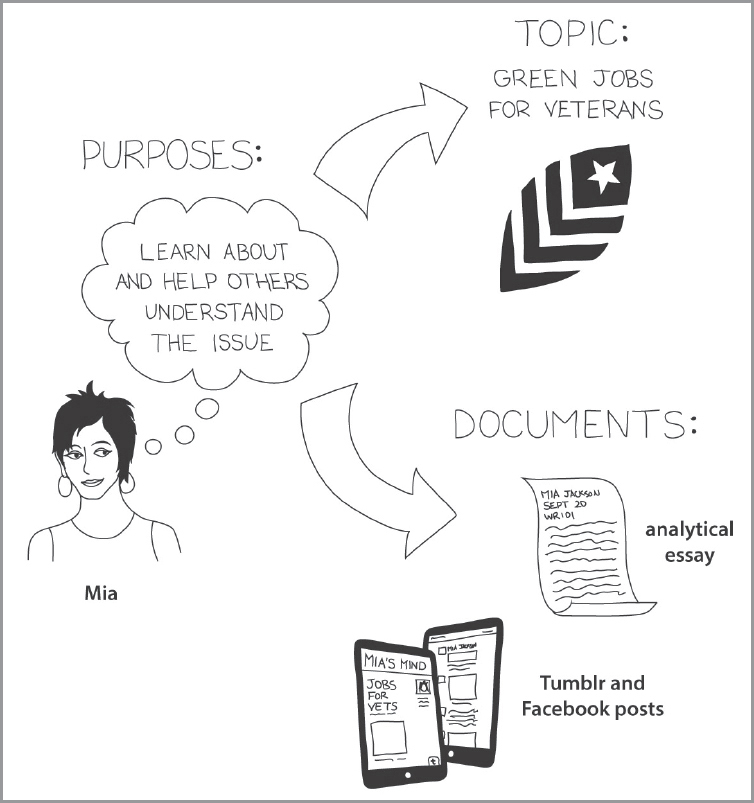Writing Has a Purpose
As is the case with spoken conversations, writers join written conversations for particular purposes, which in turn affect the roles they adopt. Writers hoping to persuade or convince their readers, for example, take on the role of advocate, while those hoping to inform readers take on the role of reporter. You can read more about the roles writers adopt in Chapters 5 through 10.

Writers often have more than one purpose for writing a document. Writers of academic essays, for instance, might complete their essays not only to earn a grade and pass the course but also to learn about a particular topic or improve their composition skills. Similarly, writers of newspaper and magazine articles usually write because an editor has given them an assignment. But they often find themselves interested in their subjects and end up writing as much for themselves as for their readers.
Writers’ purposes for joining a conversation are shaped by their needs, interests, and backgrounds. For example, a person who suffers from asthma might need to ensure that plans to build a coal-powered electrical generating plant near his neighborhood will take health concerns into account. Another person with a strong interest in the use of clean coal technologies might want to support proposed legislation on reducing power-plant emissions. Still others, such as those employed by the power industry, might be concerned about how proposed legislation on power-plant emissions might affect their employment.
Your purposes will affect what you choose to write about and how you compose a document. Mia Jackson, the student who posted on Tumblr and Facebook about green jobs for military veterans, wanted not only to learn about the issue but also to call attention to a need to expand employment opportunities for others. As she wrote in her posts, her purposes affected her choice of what to write about, which information to use as supporting evidence for her points, and how to address the information, ideas, and arguments she encountered in her reading.